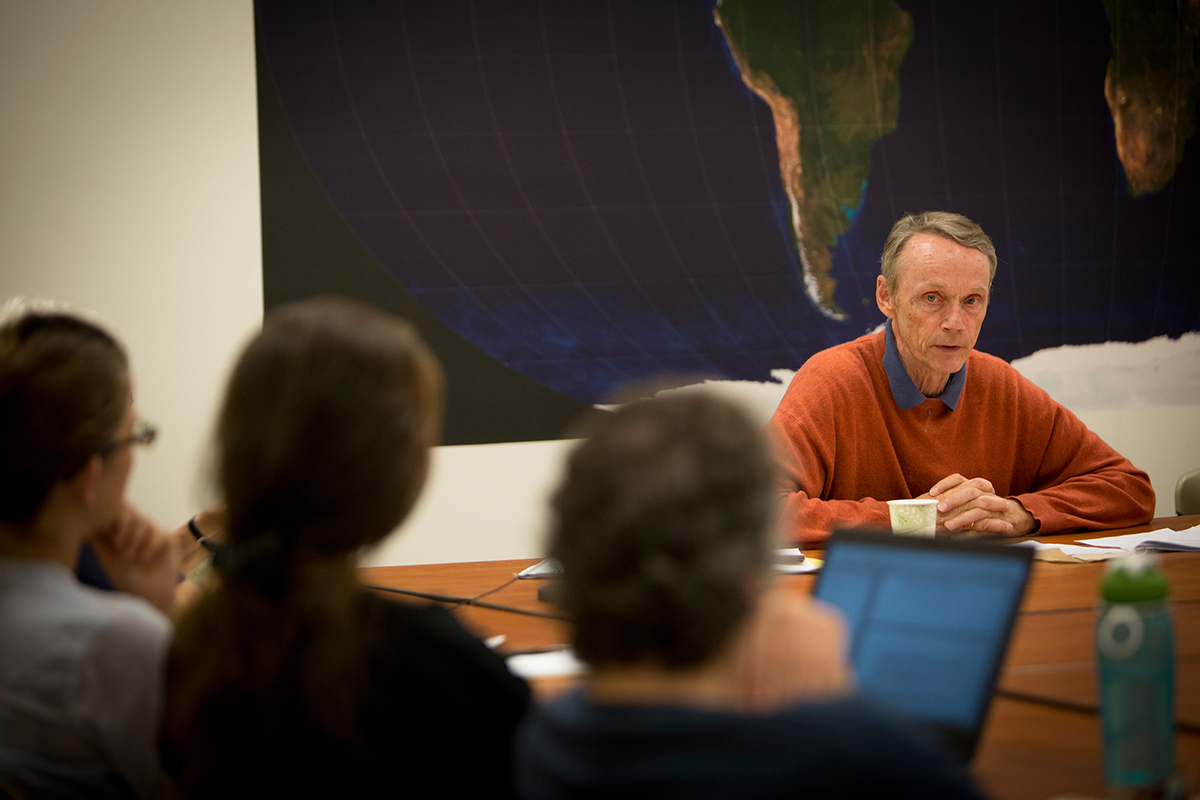Peter Katzenstein sees no new Cold War

The United States is not entering a new Cold War with Russia, but rather a Cold Peace, according to Peter Katzenstein, Cornell’s Walter S. Carpenter Jr. Professor of International Studies in the College of Arts and Sciences.
Today’s U.S. Cold War rhetoric comes from both sides of the political spectrum, with the right calling for a militarized foreign policy approach, including direct military assistance to Ukraine, Katzenstein said. He warned that the United States is not the major player in a regional European conflict. Russia and Germany together approaching the crisis in Ukraine in ways that are uncomfortable for American politicians.
“Throughout the Cold War, Germany disagreed fundamentally with the United States about the nature of relations with the Soviet Union,” Katzenstein argued during a Sept. 10 lecture marking the 45th anniversary of the Judith Reppy Institute for Peace and Conflict Studies (formerly the Peace Studies Program), begun in 1970 by professors George Quester and Richard Rosecrance.
Katzenstein’s talk, “Cold Peace: Russia, Germany, the U.S. and the Future of Europe,” was based on a paper he is writing. During the Cold War, Germany saw Russia not as enemy, but as security partner. Chancellor Angela Merkel of Germany has maintained a close relationship with Russian President Vladimir Putin. Given the positive nature of this relationship, Putin was quite surprised by Merkel’s strong negative reaction and support of the imposition of sanctions after Russia moved on Crimea, said Katzenstein.
Russian politicians believe “Russia needs to be attached to the sources of dynamic economic and technological change and growth, but at the same time they insist fully on traditional spheres of influence,” Katzenstein pointed out.
These spheres of influence date back to the Soviet period. Yet Putin views Eurasia as a space Russia has controlled for centuries. He believes that the largest single country in the Eurasian landmass must be a great power. Conducting “frozen wars” – the kind of wars that are not meant to end – allows Russia continually to assert its dominance over smaller nations, Katzenstein said. This authority provides a contrast to Atlanticism, or the global influence of the United States.
Katzenstein argued that both the Russian and Atlanticist worldviews are outdated. Today’s world resembles Swiss cheese: It is porous. Russian and American foreign policymakers have been reluctant to accept this new world order. Historically, Eurasia was a zone of exchange – like an ocean – where goods and ideas spread with ease. This history provides Russia and the United States the material to accept a more accurate mental map of today’s world. Eurasia should be seen as a vast ocean, a meeting place where currents flow in numerous directions.
One example of Russian and American outmoded thinking can be found in recent events in Ukraine, said Katzenstein. Both powers tried to convince Ukraine that it must choose between East and West. Yet East Germany during the Cold War provides an alternative to this binary. The country traded freely with West Germany – a European Union member – thus making East Germany indirectly part of the European Economic Community. Since the world was a complex place, “full of odd constellations,” East Germany could be in both camps. If only Ukraine could exist simultaneously in both the Eurasian and the European spheres, much of the current conflict could be resolved, Katzenstein said.
Katzenstein’s talk was the first Reppy Institute lecture of the 2015-16 academic year. The Reppy Institute, led by Department of Government professor Matthew Evangelista, meets every Thursday from 12:15-1:30 p.m. in Uris Hall G-08.
Media Contact
Get Cornell news delivered right to your inbox.
Subscribe